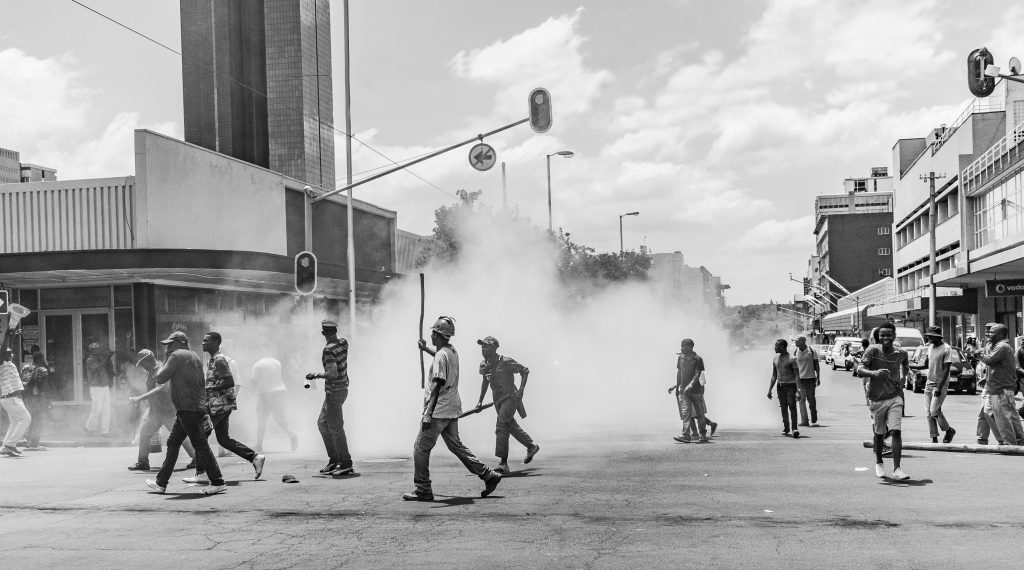Peace efforts stall as violence escalates in Eastern DRC
3 min read
Violence escalates in eastern DRC as peace talks stall, leaving civilians in crisis.
Diplomatic Gains Overshadowed by Rising Violence
Despite international diplomatic engagements, the eastern Democratic Republic of the Congo (DRC) continues to face escalating violence. The United Nations has raised concerns that the worsening situation on the ground undermines recent efforts at peace, as communities remain under siege by the M23 rebel group and other armed factions. Thousands have lost their lives in the conflict, while hundreds of thousands more have been displaced, heightening fears of a prolonged humanitarian crisis.
Peace Agreements Struggle to Hold
In July, the DRC government and representatives of the M23 conflict signed a peace declaration in Qatar. This agreement was expected to build on an earlier deal reached between Congolese and Rwandan foreign ministers in Washington a month prior. However, cracks quickly emerged in the framework. The M23 rebel movement, which was not directly included in the negotiations, later announced that it would not recognize or implement the terms of the agreement. This rejection has left the peace process fragile and incomplete.
United Nations Expresses Concern
Martha Ama Akyaa Pobee, the UN Assistant Secretary-General for Africa, emphasized the gap between diplomatic promises and battlefield realities. She noted that while progress was made in political talks, combatants on the ground have not demonstrated compliance with their obligations under Security Council Resolution 2773. According to her, the resurgence of violence directly undermines international confidence in the DRC’s peace roadmap.
Congo’s Leadership Questions Rwanda’s Role

Zénon Mukongo Ngay, the DRC’s ambassador to the UN, voiced skepticism about Rwanda’s sincerity in supporting peace efforts. He alleged that Kigali, alongside its alleged affiliates within M23, has disregarded signed commitments and continues to pursue destabilizing actions inside Congolese territory. These remarks reflect the deep mistrust that persists between Kinshasa and Kigali, casting doubt on the possibility of achieving lasting peace without genuine regional cooperation.
Rwanda Defends Its Security Concerns
Responding to accusations, Rwanda’s UN representative Martin Ngoga reaffirmed Kigali’s commitment to sovereignty and stability. He stressed that Rwanda, like Congo, has legitimate security concerns that must not be ignored. Ngoga further urged Kinshasa to ensure that all Congolese citizens are treated fairly and equally, suggesting that domestic inequalities continue to fuel grievances that rebel groups exploit. Rwanda insists its territorial integrity is non-negotiable and has accused Congolese authorities of shifting blame instead of addressing internal challenges.
Ceasefire Deadline Passes Without Progress
A key ceasefire deal between Kinshasa and M23, which was expected to be finalized under Qatari mediation, has lapsed without resolution. With negotiations stalled and no visible signs of renewed dialogue, prospects for peace appear bleak. Analysts fear that the failure to reach a timely truce could embolden armed groups, increasing the likelihood of further violence and displacements in the already volatile eastern provinces.
Humanitarian Impact Deepens
The escalating conflict has left a devastating impact on civilians. Families continue to flee their homes in massive numbers, overwhelming humanitarian agencies that are already stretched thin. Camps for internally displaced people are overcrowded, with limited access to food, shelter, and healthcare. Aid organizations have warned that unless a meaningful ceasefire is achieved soon, eastern DRC could witness one of the region’s worst humanitarian crises in years.
Uncertain Road Ahead
For now, peace in eastern DRC remains uncertain. The international community is urging all sides to recommit to dialogue and compliance with existing agreements. Yet, without direct engagement with M23 and credible guarantees of accountability from both the Congolese and Rwandan governments, the road to stability appears fraught with obstacles. As ceasefire deadlines pass and violence escalates, civilians remain caught in the crossfire of a conflict that continues to defy resolution.






